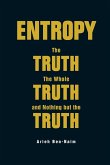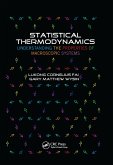This title is a supplement to lectures and tutorials in a Thermodynamics course and also serves as a guide to more comprehensive texts. Rather than merely hurrying through the principles and then dealing with applications, the book presents the scientific method by discussing the science of thermodynamics starting from empirical observations that are relatable to students. For example, the book uses everyday experiences, such as a cup of hot tea cooling spontaneously, to arrive at the Second Law and Entropy through the idea of the heat engine. All the fundamentals are covered and illustrated with examples that resonate with the broad concerns and interests of students who take STEM classes today. The book examines the thermodynamics of hydrogen and gasoline engines, fuel cells versus the explosive combustion of hydrogen, how efficiently organisms and Spiderman utilize energy, the fizzing of a can of soda and decompression sickness, and how atmospheric carbon dioxide affects ocean pH and, worryingly, dissolves the calcium carbonate shells of marine animals, and also, what might happen if you inadvertently fall into a salt lake. Thermodynamics is presented as the macroscopic approach to understanding Nature when heat is involved. The book draws upon the idea of microstates where that clarifies the macroscopic ideas: entropy of mixing of gases is linked to Boltzmann and Gibbs' entropy formulations, thus motivating the formulation of the chemical potential of non-ideal systems in terms of their activities. Thermodynamics contains deep insight into the passage of Time. In the discussions of the Second Law the book highlights this, emphasizing that all the processes we observe in our universe are irreversible. Adopting an informal and readable style without compromising the rigour in this book, the goal is to help a broad audience of students appreciate the essential meaning of the Laws of Thermodynamics and to apply the fundamental framework at an elementary level.
Hinweis: Dieser Artikel kann nur an eine deutsche Lieferadresse ausgeliefert werden.
Hinweis: Dieser Artikel kann nur an eine deutsche Lieferadresse ausgeliefert werden.








